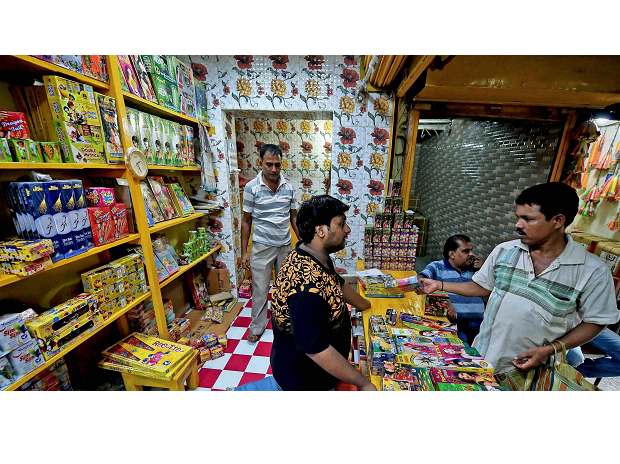Diwali is one of the biggest festival and a significant opportunity to grab maximum sales for businesses. It comes with a series of important festivals like Karva Chauth, Dhanteras, Bhaiya Dooj, Goverdhan Pooja, Vishwakarma Day, etc. that keeps the market sales on the go. This festive season alone provides about 30% of the total value of the business in a year. However, this year, the scenario is quite disheartening. Its only one week left for this eagerly awaited festival and markets are facing their worst time and traders seems to have lost hope of getting good sale number this festive season.
According to the Confederation of All India Traders (CAIT), due to the significant slump in the economy which is quite visible in businesses and absence of festive spirit, the traders across the country have decided not to decorate the markets for Diwali as a protest against “unethical business practices of eCommerce companies”. The main reason for this disappointing scenario is the increasing fame of the eCommerce market, which offers huge discounts and offers on various products.

Attractive pricing and unfair business practices have led most customers to shift to online shopping. These online giants are eating the sale numbers of offline retailers and traders. Amazon and Flipkart, both have sold goods of around 19,000 crores in just four days of festive sale.
According to the CIAT president BC Bharti, retail trade-in India generates a business of 45 lakh crore in a year and out of which 6 lakh crores is earned during the Diwali season. Traders to have good sales stock the products before Diwali. This year all the major retailers and wholesale marketers are entirely deserted and disappointed. There are around7 crores small business that employs 45 crore employees. CIAT said.

CAIT secretary general Praveen Khandelwal said there is a decline of 60%in the business of mobile sector only, 35 percent in FMCG and consumer durables, 35 percent in electronics goods, 30 percent in electrical appliances, 25 percent in apparel, 20 percent in footwear, 35 percent in gift items, 25 percent in furnishing products and 25 percent in decorative items.
He further said there is a fall of about 15 percent in building hardware, 30 percent in kitchen equipment, 30 percent in computer and computer goods, 35 percent in grocery, 20 percent in watches, 30 percent in beauty and cosmetics, bags and 35 percent in luggage, 30 percent in fitness and sports goods, 40 percent in fashion clothing and about 30 percent in toys.
There can be a drop of 50-60% in the business of traders if things go on like this, which is quite alarming. According to the statement by both president and secretary CIAT, the offline market has already suffered a loss of 30% as compared to last year, which no doubt is a matter of grave concern.

